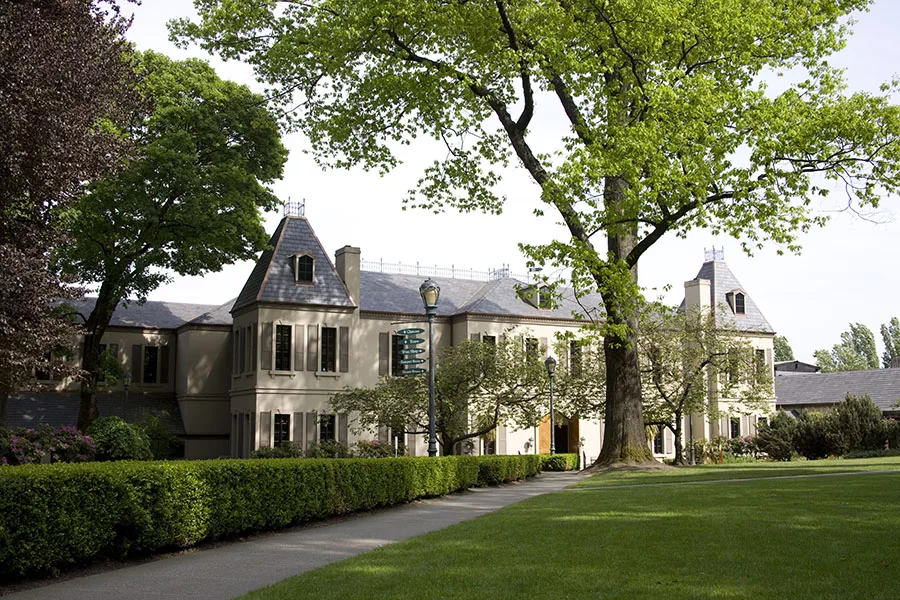
Home » Ste. Michelle’s $1.2 billion sale will be felt in the Mid-Columbia
Ste. Michelle’s $1.2 billion sale will be felt in the Mid-Columbia

July 14, 2021
Ste. Michelle Wine Estates, Washington’s largest winery by far, will join a corporate stable that includes consumer-focused brands such as Ann Taylor Loft, Torrid and Hot Topic under a $1.2 billion deal announced July 9.
Altria Group Inc., parent to the Woodinville-based winery, said it had reached an agreement to sell Ste. Michelle Estates to Sycamore Partners Management LP, a New York private equity firm that invests in brands often found in shopping malls.
The agreement covers all assets associated with Ste. Michelle Estates, including wineries and company-owned vineyards, said Ryan Pennington, spokesman for the wine business.
Ste. Michelle owns eight distinct winery facilities, including five well-known Mid-Columbia powerhouses.
In addition to the flagship Chateau Ste. Michelle Winery in Woodinville, it operates Canoe Ridge Winery in Paterson, Columbia Crest Winery in Paterson, Col Solare Winery in Benton City, 14 Hands Winery in Prosser and Northstar Winery in Walla Walla.
The Washington wineries are collectively valued at $170 million for property tax purposes by the assessors in Benton, King and Walla Walla counties.
It also owns two wineries in California – Stag’s Leap Wine Cellars in Napa and Conn Creek Winery in St. Helena.
Most wineries produce more than one brand, Pennington said.
The all-cash deal is expected to close by the end of the year, subject to Sycamore securing financing and regulatory approval.
In addition to wineries, Ste. Michelle Estates farms 30,000 acres of vineyards in Washington, Oregon and California, the vast majority under contract. Only 3,000 acres are company owned.
As with its wineries, most vineyard activity is focused in Washington, where it farms 27,000 acres and owns 2,500.
“We contract most of our grapes,” Pennington said.
The sale affects a global workforce of 1,077, with 834 evenly divided between eastern and western Washington.
It is also the namesake sponsor of the Washington State University Wine Science Center on the WSU Tri-Cities campus in Richland.
Privately, wine industry insiders long expected Altria to shed its wine business. Wine sales represented less than 3% of the Richmond, Virginia-based company’s $4.5 billion in net earnings last year.
And Altria itself places its focus and priority on tobacco. Its 10-year vision is, “to responsibly lead the transition of adult smokers to a non-combustible future” and its “Here’s to a smoke-free future” ad is in heavy rotation on major media, including the New York Times website.
It repeated its commitment to its smoke-free goal in the press release announcing the wine business sale.
Altria previously disclosed it was evaluating the wine business after it wrote off $411 million in inventory losses and noncancellable wine contracts and an 11% decline in wine revenue last year. The performance capped a five-year downward trend for the Ste. Michelle business that dates to 2016, when it moved to reset the business amid a glut of wine and grapes.
Ste. Michelle is the undisputed anchor of Washington’s $8.4 billion wine industry and the gluts it faced were a drag on the industry even before the Covid-19 pandemic curbed sales due to bar and restaurant closures.
David Dearie joined the company in November as president and chief executive officer and was tasked with reviving its fortunes.
“The Ste. Michelle leadership team and I look forward to working with the team at Sycamore Partners and believe we are well-positioned to drive the next phase of our growth,” he said in a written statement included in a press release.
It will be a big challenge.
Chris Bitter, a Northwest wine economist who runs Carmel, Calif.-based Vintage Economics, didn’t comment on the potential impacts of the Ste. Michelle Estates sale, but he shared an overview of the state of the industry that has recorded decelerating sales for a decade, particularly in the value and lower priced premiums sectors.
Wineries that didn’t adapt struggled, he said.
National wine sales grew during the height of the pandemic as sales at grocery stores offset a slump in restaurant sales. The shift benefitted large brands, but demand lost momentum earlier this year. The pandemic bump may be temporary.
“(L)arge wineries will continue to face the same headwinds going forward as they did before the pandemic – most notably competition with spirits and alternative alcoholic beverage categories like hard seltzers,” he said.
The culprit is familiar: Consumer tastes have shifted to spirits, coming at the expense of beer and wine.
“The Millennials have distinctly different preferences and make choices based on different criteria than their Baby Boomer parents,” he said.
Second quarter sales data isn’t available, but first quarter sales jumped compared to 2020 but were still below 2019 levels.
Real Estate & Construction Local News
KEYWORDS july 2021





